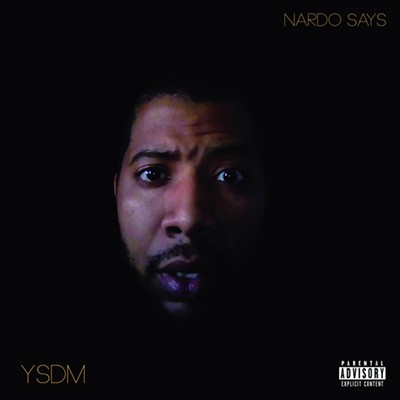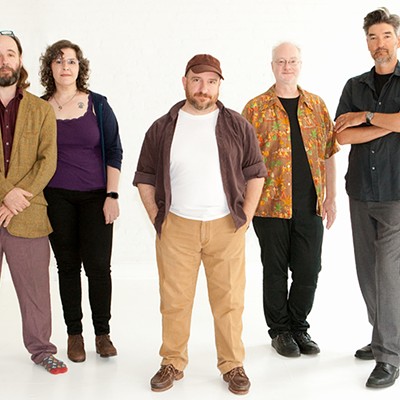Monday, April 28, 2008
Interview: Sasha Frere-Jones (part 2)
Note: This is part two of my discussion with Sasha Frere-Jones. Part three will be posted tomorrow.
CP: You keep two blogs, one for the New Yorker and one – I'm saying this as if you didn't know it . . .
SFJ: You know, it's actually possible that I wouldn't realize that. I could easily have forgotten.
CP: There's been a lot of backlash and writing recently about music blogging having a negative affect on people's listening and buying habits because people blogging piggyback off of one another and end up hyping things that might not deserve the hype that they get – then that band will get big for a short time then disappear again. I wonder whether you'd agree that with them that's a trend in fact, and that that's a negative trend.
SFJ: My sort of disappointing answer would be that I don't really care. I don't know. Bands getting hyped is really far down my list of things I care about.
Hype is sort of fun. It's like Bob Christgau said, and I think it's totally true – if you read too many blogs, you're going to get annoyed, but there's a really simple cure and that's just don't read them. Probably kids now who are checking into blogs every day are going to get really weird headaches because there just isn't that much to talk about.
One thing that hype does is that it's sort of like Hamburger Helper – it sort of extends the conversation. It's like when you're IMing and you're reduced to saying shit like, "Wow, are you watching that video?" You're just sort of filling up the space because you have a blog. I have nothing against the places that post 97 times a day like Brooklyn Vegan or Stereogum or whatever, but they made the decision to post 97 times a day, and they're going to sort of be simulating newsiness, and there's going to be this feedback loop of, like, "I'm sick of Yeasayer! What's the deal with Deerhunter?" and that's because they're people who just stare at the computer all day long and – or Vampire Weekend or whatever. These things do shake themselves out pretty easily in the marketplace when people start recording and touring, they last or they don't last.
But again, hype is fun. It's fun to get excited about a thing. And I don't know what could be harmed. It's sort of like Napster. The guy from Offspring, or maybe Rancid, his line on it, back when Dr. Dre and Metallica were like "We're gonna sue because we need to be, like, more millionaire-ish!" and the guy from the Offspring, or Rancid, I can't remember which, said, to me it's very simple – more fans is better. That's how I feel about all this.
When people start complaining about blogging, or some kind of meta- like, the new world isn't good, I think – the rules haven't changed. Good writing is good writing and there isn't going to be a lot of it. If people are exchanging mp3's and into music and talking about it, that's only good. Really terrible blogs just don't last. They just don't. The democracy of the web is really great – like, this guy who writes fourfour, Rich, who now has a lot of real writing gigs –he only got popular because he was so good ,and he was just a blogger but he rose above the other nine million blogs because he was so funny and put unbelievable amounts of time into these crazy video things. And that's awesome. And there are obviously bloggers who are 20 times smarter than people who have some newspaper gigs.
And the idea of being put out of business – I think some music magazines have been put out of business by the internet, but that's the way it goes. The internet has not put, say, restaurants out of business because they're not doing the same thing. That's an obvious thing to say, but if history replaces you, that's harsh, but that's the way it goes.
CP: The incident a month or two ago with the notorious Maxim review of the Black Crowes album --
SFJ: Yes, that was me.
CP: Right, so I thought. Some people were up in arms – this represents the degradation of music criticism as a practice – do you see it as an isolated thing or represents a larger trend toward laziness in criticism?
SFJ: Well, there's sort of no way for me to answer that question because I only know what I do. I know that I listen to records about a gabillion times before I write about them, but that's just me. That is what most good critics do. I mean, I can't really figure anything out, because I have such a shitty memory, unless I listen a billion times. And it takes me a long time to figure out what I think.
I don't like quick turnaround time. That's one reason I like this job, though we do occasionally come out with something right on top of the record release. But one of my favorite columns I've done lately was the Mariah Carey piece [anthologized in DaCapo's Best Music Writing 2007), which came out close to a year after the album came out. And I think there should be more of that in criticism in general.
Bob Christgau again, and not to keep talking about Bob, but I did notice growing up that he was one of the few cats who would sort of be quiet about a record, and you wondered where he went, then after everyone else had had their turn, he would weigh in, and he had figured out what he thought.
It matters with things like theater because it's a limited run, and art, and it even kind of matters with cinema because movies go out of the theater, but with records it only sort of matters. Bands don't tour, usually, until a few months after the record comes out. Although I suppose you can wait so long, the band breaks up. All this is not the answer to your question.
It's hard, you can't write about a record you haven't heard. Ironically, there are probably records that don't even deserve to be listened to all the way through, and the Black Crowes thing – the funny thing is, the joke is that it probably was a pretty accurate review. I don't know that writer but I'm going to assume that he probably doesn't do that all the time. I read somewhere on a blog that he didn't think it was going to be a full review, and it was run as a full review, which could be true, I have no reason not to believe that.
If you're being paid very little and you're being pushed to do little hundred-word blurb reviews, you've got a lot of people who are probably listening to five songs and then writing the review. And how much do those blurby reviews matter to people? I don't know. I've never really liked them and I don't read them and I never did, though I did end up writing them for a while. I always liked essays more.
Especially picking up a magazine where I don't know the writers – three or four or five stars is kind of meaningless because I didn't know who they were. It was really critics that I could establish a relationship with that I would read, and those would be people in places like the Voice and Artforum and the Times, where they got to work in a longer format, and you could get to know them over time. But people I guess love those little squibbly reviews because you see Blender and EQ or whatever, the other one, Uncut, "With 270 reviews!" But people also seem to love lists, which have taken over. I used to really like lists but they've been ruined for me. How many times are we going to read about the hundred greatest albums of the '80s? It was really fun the first time but now it just makes me want to start writing lists that don't mean anything.
Overcanonization – there's a crosstalk that cancels everything out. If everything is the greatest album ever, then you begin to lose perspective. But that's the casualty of the age where you can't stop people from having a million lists. We have lost consensus and there are bigger things to worry about than whether there's a clear consensus about bands. I think that's one reason I'm not particularly worried about hype.
Tags: FFW>>













